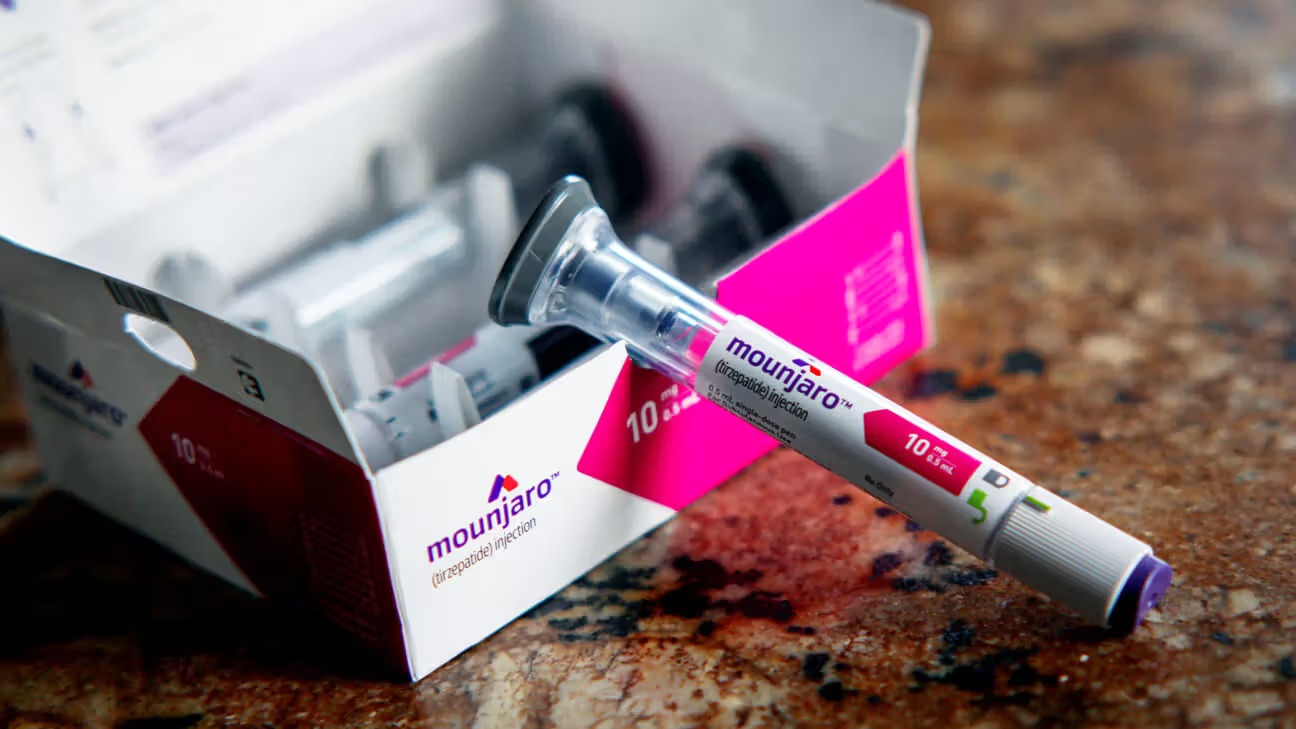Home>Finance>What Insurance Covers Bariatric Surgery In Missouri


Finance
What Insurance Covers Bariatric Surgery In Missouri
Published: November 8, 2023
Looking for insurance coverage for bariatric surgery in Missouri? Learn about finance options and find the right insurance plan to cover your procedure.
(Many of the links in this article redirect to a specific reviewed product. Your purchase of these products through affiliate links helps to generate commission for LiveWell, at no extra cost. Learn more)
Table of Contents
- Introduction
- Understanding Bariatric Surgery
- Insurance Coverage for Bariatric Surgery
- Bariatric Surgery Requirements in Missouri
- Insurance Providers in Missouri that Cover Bariatric Surgery
- Coverage Details for Bariatric Surgery in Missouri
- Out-of-Pocket Costs for Bariatric Surgery in Missouri
- Tips for Navigating Insurance Coverage for Bariatric Surgery
- Conclusion
Introduction
Welcome to our comprehensive guide on insurance coverage for bariatric surgery in Missouri. If you or a loved one is considering this life-changing procedure, understanding the available insurance options is crucial. Bariatric surgery, also known as weight loss surgery, can provide significant health benefits for individuals struggling with obesity and related health issues.
In Missouri, insurance coverage for bariatric surgery varies depending on the provider and policy. While some plans offer generous coverage, others may have more restrictive guidelines. Navigating the intricacies of insurance coverage can be overwhelming, but with the right information, you can make an informed decision.
In this guide, we will walk you through the basics of bariatric surgery, the requirements set by insurance providers in Missouri, and the coverage details you need to consider. We will also provide tips for navigating the insurance process to help you maximize your chances of securing bariatric surgery coverage.
It’s important to note that this guide is meant for informational purposes only and should not substitute professional advice. We recommend consulting with your insurance provider and healthcare team to get personalized information regarding coverage options for bariatric surgery.
Now, let’s dive into the world of bariatric surgery and explore the insurance coverage available in Missouri.
Understanding Bariatric Surgery
Bariatric surgery is a surgical procedure that helps individuals who are severely overweight or obese to achieve substantial weight loss. It involves making changes to the digestive system to limit the amount of food that the stomach can hold and/or the absorption of nutrients. There are different types of bariatric surgery procedures, including gastric bypass, gastric sleeve, and adjustable gastric band.
These surgical procedures not only result in weight loss but also have a significant impact on improving or even resolving several obesity-related health conditions, such as type 2 diabetes, hypertension, sleep apnea, and joint problems. Bariatric surgery is generally recommended for individuals with a Body Mass Index (BMI) of 40 or higher, or a BMI of 35 or higher with comorbidities.
To be considered a candidate for bariatric surgery, individuals typically undergo a thorough evaluation, including a medical history review, physical examination, and possibly additional tests. This is to ensure that the individual is physically and mentally prepared for the procedure and has realistic expectations of the outcomes.
Bariatric surgery is a major surgical procedure and should not be taken lightly. It requires a commitment to lifestyle changes, including dietary modifications, regular exercise, and ongoing support and monitoring from a healthcare team. Therefore, it is crucial to carefully weigh the benefits and risks before deciding to undergo bariatric surgery.
Now that we have a better understanding of bariatric surgery, let’s explore how insurance coverage plays a role in accessing this transformative procedure in Missouri.
Insurance Coverage for Bariatric Surgery
Insurance coverage for bariatric surgery can vary depending on the insurance provider and policy. While some insurance plans are more inclusive and provide comprehensive coverage for bariatric surgery, others may have stricter requirements or limited coverage options.
In general, insurance companies consider bariatric surgery to be a medically necessary procedure for individuals who meet specific criteria. These criteria often include having a certain body mass index (BMI) threshold, documented failed attempts at non-surgical weight loss methods, and the presence of obesity-related health conditions.
Insurance providers typically require pre-authorization or prior approval for bariatric surgery to ensure that the procedure is medically necessary and meets their specific guidelines. It is essential to communicate with your insurance company and healthcare team to determine the coverage details and requirements for bariatric surgery.
It’s important to note that insurance coverage may not include all aspects of bariatric surgery. While the surgical procedure itself may be covered, there may be additional costs associated with pre-operative evaluations, post-operative follow-ups, dietary counseling, and psychological support. Understanding the coverage details and potential out-of-pocket costs is crucial in planning for bariatric surgery.
Additionally, some insurance providers may have specific network requirements, meaning that you may need to select a healthcare provider or facility within their network to receive coverage. It is important to review your insurance policy and consult with your healthcare team to ensure that you are accessing services within your network to maximize coverage.
If your insurance provider does not cover bariatric surgery or if you do not have insurance coverage, there may be other options available. Some healthcare facilities offer self-pay or financing options to help individuals afford the procedure.
Understanding insurance coverage for bariatric surgery can be complex, but with the right guidance and communication, you can navigate the process more effectively. In the next section, we will explore the specific requirements set by insurance providers in Missouri for bariatric surgery coverage.
Bariatric Surgery Requirements in Missouri
When it comes to insurance coverage for bariatric surgery in Missouri, there are specific requirements that individuals must meet to be eligible for coverage. These requirements are put in place to ensure that the procedure is medically necessary and to determine the appropriateness of coverage.
One of the primary requirements for insurance coverage of bariatric surgery in Missouri is a certain BMI threshold. Most insurance providers require individuals to have a BMI of 40 or higher or a BMI of 35 or higher with obesity-related health conditions, such as diabetes, high blood pressure, or sleep apnea. However, it’s important to note that BMI requirements may vary between insurance providers, so it’s crucial to check your specific policy.
In addition to BMI, insurance providers may require documented failed attempts at non-surgical weight loss methods. This can include participation in weight management programs, diet and exercise plans, or medically supervised weight loss programs. Your insurance provider may ask for records or documentation to demonstrate these previous attempts.
Some insurance providers may also require individuals to undergo a psychological evaluation to assess their readiness for bariatric surgery. This evaluation helps determine if there are any underlying psychological factors that may impact the success of the procedure and long-term weight management. It is essential to follow any requirements set by your insurance provider for psychological evaluations.
Prior to undergoing bariatric surgery, individuals in Missouri may also need to obtain a recommendation or referral from a qualified healthcare professional, such as a primary care physician or a bariatric specialist. This referral helps to ensure that the procedure is appropriate for the individual and that they are receiving proper medical supervision.
It is important to understand that these requirements may vary between insurance providers in Missouri. To determine the specific requirements for bariatric surgery coverage, it is recommended to review your insurance policy, contact your insurance provider directly, and consult with your healthcare team.
Now that we have explored the requirements for bariatric surgery coverage in Missouri, let’s move on to the next section, where we will discuss the insurance providers in Missouri that cover bariatric surgery.
Insurance Providers in Missouri that Cover Bariatric Surgery
In Missouri, several insurance providers offer coverage for bariatric surgery. It’s important to note that the coverage options and requirements may vary between providers. Here are some of the insurance providers in Missouri that commonly cover bariatric surgery:
- Blue Cross Blue Shield of Kansas City: Blue Cross Blue Shield of Kansas City offers coverage for bariatric surgery for eligible members. They have specific criteria that must be met, including BMI requirements and documentation of failed attempts at non-surgical weight loss methods.
- UnitedHealthcare: UnitedHealthcare provides coverage for bariatric surgery for eligible members in Missouri. They may have specific guidelines and requirements that must be met, such as BMI thresholds, medical documentation, and participation in a medically supervised weight loss program.
- Cigna: Cigna offers coverage for bariatric surgery in Missouri. They have specific requirements, including BMI thresholds, documentation of failed attempts at non-surgical weight loss methods, and participation in a medically supervised weight loss program.
- Aetna: Aetna provides coverage for bariatric surgery for eligible members in Missouri. They typically have BMI requirements, documented failed attempts at non-surgical weight loss methods, and evaluation by a qualified healthcare professional.
- Humana: Humana offers coverage for bariatric surgery in Missouri. They have specific requirements, including BMI thresholds, documentation of failed attempts at non-surgical weight loss methods, and evaluation by a healthcare professional.
This list is not exhaustive, and there may be other insurance providers in Missouri that offer coverage for bariatric surgery. It is important to consult with your insurance provider directly to determine the coverage options and requirements specific to your policy.
Remember, insurance coverage for bariatric surgery can vary, and not all plans may cover the procedure. It’s essential to carefully review your insurance policy and communicate with your insurance provider to understand the coverage details, network requirements, and any out-of-pocket costs associated with bariatric surgery.
Now that we have explored the insurance providers in Missouri that cover bariatric surgery, let’s move on to the next section, where we will discuss the coverage details for bariatric surgery in Missouri.
Coverage Details for Bariatric Surgery in Missouri
When it comes to insurance coverage for bariatric surgery in Missouri, the specific details can vary depending on the insurance provider and policy. It’s important to review your insurance policy carefully and communicate with your insurance provider to understand the coverage details for bariatric surgery. Here are some common coverage details to consider:
- Pre-authorization: Most insurance providers require pre-authorization or prior approval for bariatric surgery. This means you need to obtain approval from your insurance provider before undergoing the procedure. Failure to do so may result in denial of coverage.
- Network requirements: Insurance providers may have specific network requirements. It may be necessary to select a healthcare provider or facility within the insurance provider’s network to receive coverage. If you choose an out-of-network provider, it could affect coverage or result in higher out-of-pocket costs.
- Cost coverage: Coverage for bariatric surgery may include the surgical procedure itself, hospital stay, anesthesia, and follow-up care. However, there may be separate costs associated with pre-operative evaluations, post-operative medications, dietary counseling, psychological support, and additional procedures, such as corrective surgery or revisions.
- Out-of-pocket costs: Even with insurance coverage, there may be out-of-pocket costs involved. These can include deductibles, co-pays, co-insurance, and any costs related to non-covered services or providers. It’s important to review your insurance policy to understand your financial responsibilities.
- Documentation requirements: Insurance providers typically have documentation requirements to establish medical necessity and eligibility for bariatric surgery coverage. This may include medical records, BMI documentation, proof of failed attempts at non-surgical weight loss methods, and evaluations from healthcare professionals.
It’s crucial to be proactive in gathering the necessary documentation, following the insurance provider’s guidelines, and working closely with your healthcare team to ensure that you meet the requirements for coverage. Keep in mind that coverage details can change, so it’s important to stay in touch with your insurance provider throughout the process.
Understanding the coverage details is essential in planning for bariatric surgery. It allows you to make informed decisions and be prepared for any potential out-of-pocket costs. If you have any questions or concerns regarding the coverage details, it is recommended to reach out to your insurance provider directly for clarification.
In the next section, we will provide some tips to help you navigate the insurance coverage process for bariatric surgery in Missouri.
Out-of-Pocket Costs for Bariatric Surgery in Missouri
While insurance coverage for bariatric surgery in Missouri can help alleviate some of the financial burden, there are still potential out-of-pocket costs that individuals should be prepared for. These costs can vary depending on your insurance coverage, specific policy, and any additional procedures or services required. Here are some common out-of-pocket costs to consider:
- Deductibles: Deductibles are the amount you must pay out-of-pocket before your insurance coverage kicks in. Bariatric surgery may be subject to deductibles, and the specific amount can vary depending on your insurance policy.
- Co-pays and co-insurance: Co-pays are fixed amounts you are required to pay for specific services, while co-insurance is a percentage-based cost-sharing arrangement with your insurance provider. Both co-pays and co-insurance can contribute to your out-of-pocket expenses for bariatric surgery.
- Non-covered services: Some aspects of bariatric surgery may not be covered by insurance. This can include pre-operative evaluations, post-operative medications, dietary counseling, psychological support, and complications or additional procedures not considered medically necessary. It is important to be aware of these potential non-covered services and the associated costs.
- Out-of-network costs: If you choose to receive bariatric surgery from a healthcare provider or facility that is not within your insurance provider’s network, you may be subject to higher out-of-pocket costs. It is crucial to review your policy and understand the network requirements to avoid unexpected expenses.
- Additional procedures or revisions: In some cases, individuals may require additional procedures or revisions following the initial bariatric surgery. These additional procedures may not be fully covered by insurance and can result in additional out-of-pocket costs.
It is important to review your insurance policy and communicate with your insurance provider to understand the specific out-of-pocket costs associated with bariatric surgery. Additionally, it can be helpful to budget and plan for these expenses in advance to avoid any financial surprises.
If you are concerned about covering the out-of-pocket costs for bariatric surgery, there may be financial assistance options available. Some healthcare facilities offer self-pay or financing options to help individuals afford the procedure. Additionally, there may be grants or scholarships specifically for bariatric surgery available through organizations or foundations.
Remember to keep all the receipts and documentation related to your bariatric surgery expenses. Some of these costs may be tax-deductible or eligible for reimbursement through a Flexible Spending Account (FSA) or Health Savings Account (HSA). Consult with a tax professional or financial advisor for guidance regarding any potential tax benefits or reimbursement options.
Now that we have discussed the potential out-of-pocket costs for bariatric surgery in Missouri, let’s move on to the next section, where we will share some tips for navigating the insurance coverage process.
Tips for Navigating Insurance Coverage for Bariatric Surgery
Navigating insurance coverage for bariatric surgery can be complex and overwhelming, but with careful planning and proactive steps, you can maximize your chances of securing coverage. Here are some tips to help you navigate the insurance coverage process in Missouri:
- Review your insurance policy: Carefully review your insurance policy to understand the coverage details, requirements, and any potential out-of-pocket costs associated with bariatric surgery. Take note of criteria such as BMI thresholds, required documentation, and network requirements.
- Communicate with your insurance provider: Contact your insurance provider directly to clarify coverage details, ask specific questions about the bariatric surgery coverage process, and understand what is required for pre-authorization. Keep a record of all communication with your insurance provider for future reference.
- Consult with your healthcare team: Work closely with your healthcare team, including your primary care physician, bariatric surgeon, and any other specialists involved in your care. They can provide guidance on meeting the insurance requirements, help with documentation, and provide support throughout the process.
- Document failed attempts at non-surgical weight loss: Keep records of any non-surgical weight loss methods you have attempted in the past, such as evidence of participation in weight management programs, diet plans, or medically supervised weight loss programs. These records can support your case for insurance coverage.
- Undergo required evaluations: If your insurance provider requires a psychological evaluation or evaluation by a healthcare professional, ensure that you complete these evaluations and provide all necessary documentation in a timely manner. This will help establish the medical necessity of the procedure.
- Explore financing options: If your insurance coverage is limited or if you do not have insurance, explore financing options provided by the healthcare facility or financial institutions. Some facilities offer self-pay plans or financing options that can help make bariatric surgery more affordable.
- Keep organized: Stay organized throughout the insurance coverage process. Keep copies of all relevant documents, such as medical records, evaluations, and receipts. This will make it easier to track and provide any necessary documentation requested by your insurance provider.
- Be persistent and advocate for yourself: Insurance coverage for bariatric surgery may involve navigating through various departments and completing multiple steps. Be persistent in following up with your insurance provider, be proactive in meeting their requirements, and advocate for yourself throughout the process.
Remember, each insurance provider may have its own unique requirements and guidelines for bariatric surgery coverage in Missouri. It is essential to stay informed, seek guidance from your healthcare team, and be an active participant in the insurance coverage process.
By following these tips and staying proactive, you can increase your chances of successfully navigating the insurance coverage process and accessing the bariatric surgery you need in Missouri.
Now, let’s conclude our comprehensive guide on insurance coverage for bariatric surgery in Missouri.
Conclusion
In conclusion, understanding insurance coverage for bariatric surgery in Missouri is essential for individuals considering this life-changing procedure. By having a clear understanding of the requirements, coverage details, and potential out-of-pocket costs, you can navigate the insurance coverage process more effectively and make informed decisions.
We discussed the basics of bariatric surgery, including its purpose and the potential health benefits it offers. We also highlighted the importance of insurance coverage and the criteria set by insurance providers in Missouri for bariatric surgery eligibility. Knowing the specific requirements, such as BMI thresholds and documentation of failed attempts at non-surgical weight loss methods, is crucial for accessing coverage.
We provided an overview of insurance providers in Missouri that commonly cover bariatric surgery and emphasized the importance of reviewing your insurance policy, understanding network requirements, and communicating with your insurance provider to determine the coverage details specific to your policy.
We also explored the potential out-of-pocket costs associated with bariatric surgery, such as deductibles, co-pays, and non-covered services. It is essential to be prepared for these costs and to explore financing options if needed.
To successfully navigate the insurance coverage process, we offered valuable tips, including reviewing your insurance policy, communicating with your insurance provider and healthcare team, documenting failed attempts at non-surgical weight loss, and exploring financing options. By being proactive and persistent, you can increase your chances of securing the coverage you need.
Remember, this guide is intended for informational purposes only, and it’s crucial to consult with your insurance provider and healthcare team for personalized information regarding coverage options for bariatric surgery in Missouri.
We hope that this comprehensive guide has provided you with useful insights into insurance coverage for bariatric surgery in Missouri. By understanding the requirements, coverage details, and potential costs, you are better equipped to make informed decisions and embark on your journey towards a healthier future.














